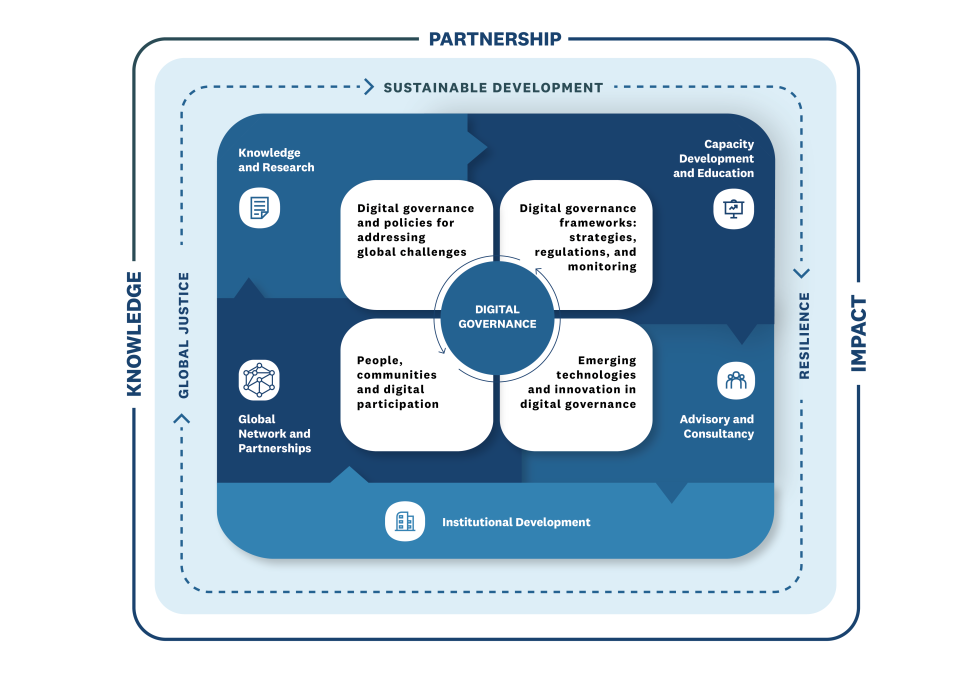Digital governance is evolving rapidly, accelerated by advances such as Artificial Intelligence and other emerging technologies.
While these innovations are reshaping government–citizen relations and enabling new forms of service delivery, they also expose persistent challenges of resilience, inclusivity, and justice. Digital transformation remains uneven worldwide, with outdated infrastructure, skills gaps, and limited resources particularly affecting developing regions such as Africa and small island states. Addressing these disparities, alongside growing concerns around cybersecurity, data protection, and participation, is crucial for building just and sustainable digital futures.
The UNU-EGOV Strategy 2025–2029 seeks to respond to these realities and advance the Unit’s vision of becoming a global leader in digital governance, particularly in addressing challenges faced by the Global South.
The Strategy is structured around four interconnected Thematic Areas:
- Digital governance frameworks: strategies, regulations, and monitoring
- Emerging technologies and innovation in Digital Governance
- People, communities and digital participation
- Digital governance and policies for addressing global challenges

Through research, policy advice, and capacity development, the new UNU-EGOV Strategy aims to advance five key strategic priorities, ensuring meaningful contributions to global governance challenges.
With knowledge and research at the core of our mission, we will be focusing on generating valuable research to promote inclusive governance and a sustainable development.
Enhancing capacity development and education initiatives in digital governance, especially in the Global South, is another of the Unit’s goals. This includes training, academic courses, seminars, and workshops that will prepare students, public officials, and institutions for digital transformation.
Acting at a global level also means building and strengthening global networks and partnerships with governments, international organizations, academia, and civil society. Through collaborative efforts, it will be possible to better address pressing digital governance challenges.
UNU-EGOV’s expertise also allows us to provide advisory and consultancy services in digital governance, bridging the gap between academic research and practical governance improvements.
Finally, we will focus on our institutional development: only a resilient and adaptable organization can respond to the evolving challenges and opportunities in digital governance.
This Strategy reaffirms UNU-EGOV’s commitment to supporting the United Nations and its Member States in using digital technologies to strengthen governance and improve lives.
